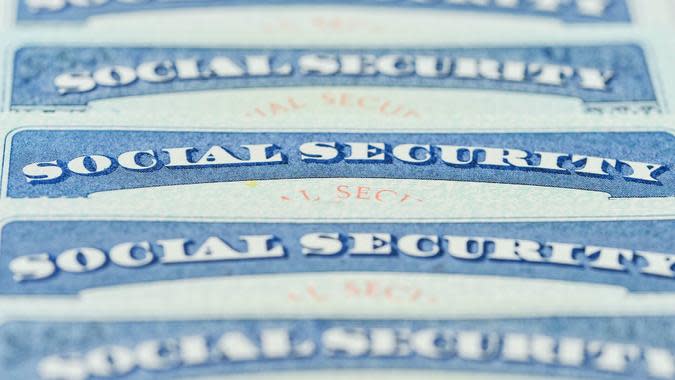Social Security: Top Things To Know for Summer 2022

Social Security is far from a stagnant, unchanging benefits program. Social Security is actually quite dynamic, with numerous changes occurring from year to year.
Social Security: You Could Lose Your Benefits If You Didn't Report Your Marriage to the SSA
Read: How Biden Is Impacting Social Security in 2022
While the broad strokes of how the system operates remain the same, changes in payouts, payment dates and other details can change at any time. Here's a look at some of the changes to Social Security that you should know for summer 2022.

Watch the Inflation Readings
This summer's inflation readings could have a dramatic effect on Social Security beneficiaries in 2023. This is because every year, the Social Security Administration makes a cost-of-living adjustment to beneficiary payouts to help recipients keep up with the cost of inflation. The amount of the adjustments is based off the annual increase in the rate of inflation from July to September of a reading known as the CPI-W. For 2022, the COLA went up 5.9%, but some estimates project that 2023's COLA will be 8.6% or even higher. Keep your eye on the CPI-W in that July-September time period to get an early indication of the possible COLA adjustment.
POLL: Are You Concerned That Social Security Benefits Will Be Reduced During Your Lifetime?

Payment Dates for Those Born Between the 1st and 10th of the Month
The actual date that you receive your Social Security payment depends primarily on the date of your birth. For 2022, if you were born between the 1st and the 10th, your Social Security check will be paid on the second Wednesday of every month.

Payment Dates for Those Born Between the 11th and 20th of the Month
For those born on the 11th until the 20th of any month, Social Security benefits will be paid on every third Wednesday.

Payment Dates for Those Born Between the 21st and 31st of the Month
Those born on the 21st until the end of the month, whether that is the 28th of February, the 30th of April, June, September or November, or the 31st of any other month, will receive their Social Security checks on the fourth Wednesday of every month.

Exceptions to the Calendar Rule
The above-listed payment dates don't apply in the following situations:
You first filed for benefits before May 1997
You are receiving a Supplemental Security Income (SSI) and Social Security payments
The state pays for your Medicare premiums
You live in a foreign country
For these cases, you will receive payments on the third of each month.
If you receive SSI benefits but not Social Security payments, your scheduled payment date will be the first of each month.

The Social Security Trust Fund May Last One More Year Than Previously Expected
As of 2021, the Social Security Administration announced that its Trust Fund would run out of money as early as 2033. As Social Security is primarily funded by payroll taxes on current workers, there is no danger that Social Security as a whole will "run out of money." However, if the Trust Fund does become insolvent, the SSA projects that benefits will have to be reduced to 78% of current levels. But in a surprising bit of good news, the SSA announced in June 2022 that the Trust Fund is now projected to last at least until 2034, adding another year to fully funded Social Security benefits.

Maximizing Earnings Now Can Help You Earn the Highest Possible Social Security Payout
The midpoint of the year is always a good time to assess the status of your Social Security wages. Your ultimate Social Security benefit is based on a combination of when you claim benefits and how much you earn during your working career. The SSA only counts your 35 highest years of earnings, and only income up to the annual Social Security wage base is applied toward your benefits.
If you want to earn the maximum possible Social Security benefit by the time you retire, you'll need to earn up to the annual wage base for those 35 years. For 2022, the Social Security wage base is $147,000. If you find yourself well behind that goal halfway through the year, you can try to find ways to increase your income in the second half of the year.
More From GOBankingRates
This article originally appeared on GOBankingRates.com: Social Security: Top Things To Know for Summer 2022
